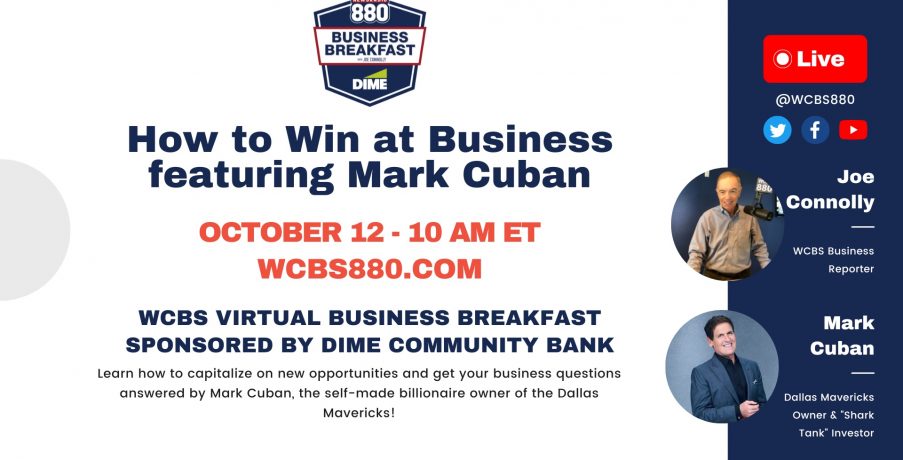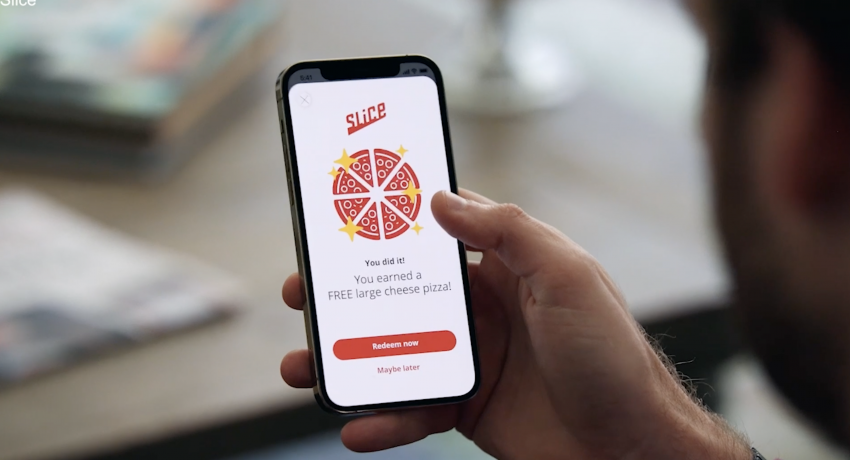
The Latest

Mastering Media Strategies: Insights from Industry Veterans

The Multi-Tiered Approach to Gaining Exposure and Credibility. Become a Repeat Source for the Media

Husband Sent Flirty Texts before Mica Miller’s Death, Waitress Says

Kristi Noem on Retraction: Kim Jong Un ‘Should Not be in the Book’

Kevin O’Leary: AI bossware can ID protesters and bar them from jobs

Neil A. Carousso Joins Growing NewsNation Network

Neil A. Carousso Departing WCBS 880

Art Business Founded by Former Foster Child Speaks to the Human Experience

1010 WINS Small Business $10K Challenge: Small Business Owners Make their Pitch for $10,000

NYC’s Élan Flowers Evolves into Blooming Subscription and Corporate Services
-
New NYC nightlife businesses symbolic of post-pandemic entertainment
Post Views: 575By Joe Connolly and Neil A. Carousso
NEW YORK (WCBS 880) — New York City is emerging from its pandemic slumber.
New nightlife businesses are opening across Manhattan as people yearn for socialization and entertainment.
“We’ve seen a lot of larger venues opening up that really have a focus on dancing,” said Ariel Palitz, senior executive director of the city’s Office of Nightlife on the WCBS Small Business Spotlight, sponsored by Dime Community Bank.
Dance clubs are a callback to a pre-pandemic oasis.
“In the past, there was an era that started from the large format dance and went into the lounge and then went into the bottle service, and now, I think there’s really a desire to be around people and to dance and to listen to loud music,” said Palitz.
The hospitality industry has been the slowest to recover with jobs lagging behind the full national recovery. But, the Office of Nightlife points to positive signs after a strong summer and early fall with elevated demand.
“We need to be around each other and to socialize and we got a glimpse of a world of what that meant not to be able to go out, not to be able to dance and not to be able to socialize with our friends and that is a world I don’t think anybody ever wants to go back to,” the city administrator said.
Palitz, who owned and operated the now-closed East Village nightclub Sutra Lounge for 10 years, noted the hospitality industry is a vital economic engine driven by socialization.
“I think the beauty of the hospitality industry job is that it’s historically been a great stepping stone for people who are going to college, who are in Broadway, who have a(n) aspiring music career. And I think as those industries also recover, so will the hospitality jobs that help to supplement incomes for people who are pursuing other dreams.”
She told WCBS 880 her experience owning the Sutra Lounge taught her to make sure people feel seen and respected and that “their good time matters.”
See more on the return of nightlife on the WCBS Small Business Spotlight video above.
-
WATCH: Mark Cuban Shares 5 Business and Life Lessons
In Best Of, Entertainment, Featured, Guest, Interview, Latest, News Stories, Sports, Technology, The World, Top News, videosPost Views: 601By Joe Connolly and Neil A. Carousso
NEW YORK (WCBS 880) — Mark Cuban, one of America’s best known entrepreneurs, spent an hour with WCBS 880 for a special Virtual Business Breakfast, presented by Dime Community Bank. It was a program filled with lessons on business and life.
Here are some of the actionable and inspiring takeaways from the “Shark Tank” star. The full event is available to watch on-demand above.
1. Always Be Learning
Cuban told the WCBS Virtual Business Breakfast he tries to spend an hour a day trying to learn something new about the many industries in which he’s invested. That can be anything from reading about algorithm changes to Instagram and how that impacts digital sales strategy to new technologies.
“I think one of the easiest ways to get a competitive advantage in any business is just to put in the time to learn,” he said.
The self-made billionaire said the business owner must be the best salesperson in a company because he or she cannot hire someone to know their business better than them.
“I call it home run hiring. And it might be you’re trying to find an employee and you think, ‘Well, if I just hired the right marketing person or the right SEO person or the right salesperson, they’ll solve my problems,'” explained Cuban. “That rarely, rarely, rarely, if ever, works. If you find yourself having to turn to someone on the outside because you haven’t been able to put in the time, not only is it hard to find a person that’s going to solve your problems, but you don’t even know the right things to tell them because you don’t understand the issues that you’re trying to solve.”
He advised business owners to put the time in to learn their business inside out, so they can ask the right questions of a potential new employee.
2. Don’t Overspend on Inventory
“Every entrepreneur does it,” said Cuban.
The Shark tells the business owners he’s invested in on the show to be realistic or they risk spending themselves out of business.
“When they write a business plan, they get in front of their spreadsheet and they start thinking, ‘Okay, if I can sell six of these, this covers my cost here. Twelve of those—no I can sell more than 12, I’ll sell a hundred.’ And all of a sudden, you know, you’ve got these pie in the sky numbers that have no base in reality.”
3. Don’t Rack Up College Debt
It’s not worth it, says the business mogul and father of three.
“If you can’t afford college without taking out a loan, which for many people that’s a reality, I’m a big believer (that) you go to community college for the first two years because introduction to sociology, introduction to accounting, introduction to calculus, it’s the same at Harvard as it is at Richland Community College.”
Cuban told WCBS 880 debt will hurt you more than attending an expensive college will help.
4. Teaching Financial Responsibility to Kids
How does a billionaire teach financial responsibility to his kids? “It’s hard,” Cuban admits, but said it’s important to teach money lessons early.
“(My kids) had to find ways to earn money to be able to buy the big things they wanted because we weren’t just going to buy them whatever they wanted,” he said. “And they also had to understand what things cost and if something was too expensive, they weren’t going to get it.”
5. Practice Self-Care
You may think someone like Mark Cuban works 24/7, but he said it’s vital for him to take mental breaks.
“I always have one thing that I do that allows me to de-stress, and I go shoot baskets,” said Cuban of his passion for basketball. “I have a little basket out in the backyard, I can go to the gym, I can go to the arena or (the Dallas Mavericks) practice facility when no one else is there and just get up shots. And that allows me just to feel good because the sound of the ball going through the net, all problems go away for that second, right? And if I’m missing shots, I’m thinking about my shot. I’m not thinking about, ‘What about this customer?’ Or, ‘Can we add this drug to CostPlusDrugs.com,’ etc.? Everybody’s got to find that one release that they have that just diverts their attention from everything that they’re doing.”
The Mavs and Cost Plus Drugs owner also declared “nice sells” and helps to reduce stress for yourself and company stakeholders.
“Be nice. You know, nice sells. Nice is one of the easiest assets that you can have in your company. And when you have a culture of being really nice to each other and nice to customers, nice to prospects, things work out a lot better.”
See more tips for business and life success from Mark Cuban on the WCBS Virtual Business Breakfast, presented by Dime Community Bank. The hour-long program is at the top of this page.
-
How to Win at Business featuring Mark Cuban: WCBS Virtual Business Breakfast LIVE, sponsored by Dime Community Bank
In Best Of, Entertainment, Featured, Guest, Interview, Latest, News Stories, Technology, The World, Top News, videosPost Views: 733Wednesday October 12 – 10 AM EDT
Streaming at WCBS880.com and @WCBS880 on Twitter, Facebook and YouTube
By Joe Connolly and Neil A. Carousso
NEW YORK (WCBS 880) – Join WCBS business reporter Joe Connolly LIVE for a discussion with Mark Cuban, the self-made billionaire entrepreneur and owner of the NBA’s Dallas Mavericks, on Wednesday, October 12 at 10 AM ET.
You will learn how to capitalize on new opportunities no matter the economic climate. Cuban will also answer your business questions, which you can submit in real time by commenting during the livestream on our Twitter, Facebook, and YouTube pages.
Cuban will opine on what New York’s businesses must do to be competitive and thrive post-pandemic. We know the outspoken shark will be brutally honest when it comes to sales and marketing strategies and economic policy!
Mark Cuban started his first business at 12 years old by selling garbage bags door-to-door in the Pittsburgh suburb where he was raised. He founded and sold a software company to CompuServe, a subsidiary of H&H Block, in 1990.

Mark Cuban Photo credit ABC/Christopher Willard His next venture was evolutionary. He helped launch one of the first sports streaming networks, Broadcast.com, where fans could listen to niche sporting events in other markets online. Cuban always believed streaming would surpass television and saw growing demand for those who wanted to watch games at their desks. The serial entrepreneur sold Broadcast.com to Yahoo! in 1999 for $5.7 billion.
Forbes ranks the Mavericks owner #227 on the Forbes 400 Richest People in America list with an estimated net worth of $4.6 billion.
Cuban is one of America’s best-known investors on ABC’s “Shark Tank” where he has inspired future generations to pursue entrepreneurship.

Mark Cuban evaluates an investment opportunity on “Shark Tank.” Photo credit ABC The shark recently founded Cost Plus Drugs to add transparency to the pharmaceutical industry by communicating drug costs to patients who pay a 15 percent markup on the manufacturing cost of their medications, plus a $3 pharmacy fee and $5 shipping charge. Cuban hopes it will help lower national drug prices of lifesaving medications. He even encourages competition to accomplish that larger goal.
On the WCBS Virtual Business Breakfast, sponsored by Dime Community Bank, you’ll come away with inspiration and actionable ideas from Cuban to grow your business and pursue your entrepreneurial dreams.
Don’t miss out on this once-in-a-lifetime opportunity to participate in a conversation with one of America’s most popular entrepreneurs!
-
UWS Photo Store Grows Despite Lower Subway Foot Traffic
Post Views: 557By Joe Connolly and Neil A. Carousso
NEW YORK (WCBS 880) — In late 2019, Kim Duncan thought opening a photo and wall decor store near the 1,2 and 3 subway lines on 96th Street and Broadway would be a slam dunk. But, the COVID-19 pandemic rocked New York City three months after Goldenlight Visions opened their doors.
“We chose this location, especially for being right by an express stop,” said Duncan on the WCBS Small Business Spotlight, sponsored by Dime Community Bank. “We always wanted to be able to service all of Manhattan.”
She told WCBS 880 in June 2021 she remained hopeful that people would return to offices full-time. By the fall of 2021, it became apparent that remote and hybrid work would keep subway ridership below pre-pandemic levels. The MTA reported about 72 percent of riders have returned underground as of October 9. Before September, fewer than 63 percent of riders returned to the rails.
“Part of our business here is our windows that show all the things that we can do and we put a lot of beautiful work into making our windows inviting because that was our plan,” said Duncan of the foot traffic potential.
The resilient small business owner found new ways to grow as the city struggled to recover.
“So, they come hearing from a friend, and I’ll tell you, they would be like, ‘Wow, you know, I don’t walk around as much, or I don’t usually come out after dark,'” said Duncan. “Thankfully, people have had a great experience here and they’ve told people.”
She said crime continues to be an issue for her Upper West Side community, but she credits NYPD officers with the 24th precinct for adding a sense of security on her block.
“They have been very helpful in walking by, giving a presence, making sure that they’re on Broadway and making things feel safe for people.”
Goldenlight Visions has been able to hire two additional employees to help her and her life and business partner Bretton May sell more products. Custom framing is their most popular service.
See this Small Business Spotlight survival update on the video above.
-
Slice Keeps Local Pizzerias Thriving through Digital Apparatus
Post Views: 554By Joe Connolly and Neil A. Carousso
NEW YORK (WCBS 880) — This tech company is on a mission to empower independent pizzerias.
Slice is a digital platform tailor-made for small pizza shops. Ilir Sela founded the company in 2010 when he saw local pizzerias being squeezed by delivery app fees.
“Slice exists to keep local thriving,” said Sela on the WCBS Small Business Spotlight, sponsored by Dime Community Bank.
His love for the pizza business is personal, growing up visiting the pizzeria his grandfather and uncle owned in Manhattan, and later, Brooklyn. That’s also where his father worked.
Sela chose to pursue computer science at the City University of New York and used his expertise to introduce technology to an old-fashioned industry he knew best.
“When you apply technology to a business, it becomes a lot more turnkey, becomes a lot more automated, and the more turnkey a business can become, the less reliant it is on actual human labor,” he said, adding, “That’s one of the biggest challenges that these operators have is access to part-time labor in this really challenging environment.”
Sela said over time, Slice helps to increase revenue, keep costs down and allows blue collar pizzeria owners to spend more time with their families.
It’s a big change for pizzeria owners who are used to taking orders over the phone, but Sela notices that customers of his 20,000 pizza shop clients are generally placing larger orders and ordering more frequently. Plus, there are fewer mistakes and returns.
“Most pizzeria owners, they will mail menus, physical menus, to these households in order to remind them to reorder. It’s sort of this old snail mail kind of operation. But if you move that customer online, you have a direct relationship with the customer in real time,” he said.
While the pizzerias are responsible for their own deliveries, Slice provides upselling and marketing tools.
“We can send them text message notifications, push notifications, email marketing,” said Sela. “You kind of know who the customer is, you know their behavior, and you can personalize offers for this customer to come back more often.”
“The real opportunity for every business is how to make your existing customers more valuable.”
“So the combination of these things, we’ve seen in many cases, double the business of a pizza shop through the same customer base.”
Sela told WCBS 880 he sees tremendous growth potential for local pizzerias that use the Slice technology to market to existing and new customers.
“A Domino’s location on average makes $1.2 million a year in sales. Most of that is digital. An independent pizza shop does about $500,000 a year, and the delta of that $700,000 difference, that’s all online volume.”
Slice began as a New York tech startup. It now has a staff of more than 900 local representatives, coordinating orders and marketing for small pizzerias across the country.
See what’s behind Slice’s software and get sales and marketing ideas on the WCBS Small Business Spotlight video above.
Social Feeds

VIDEO: Told the airline to book us on the next flight out (SPONTANEOUS TRIP!)

VIDEO: The Taylor Swift Effect | WCBS Business Breakfast

VIDEO: Future of NYC | WCBS Business Breakfast

VIDEO: Reasons for New Yorkers to be Optimistic | WCBS Business Breakfast

VIDEO: NYC's AI Chatbot | WCBS Business Breakfast






